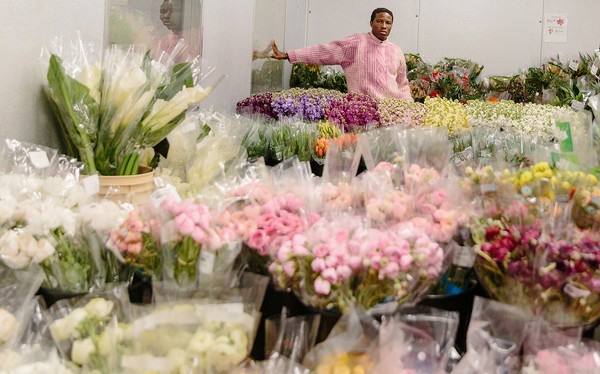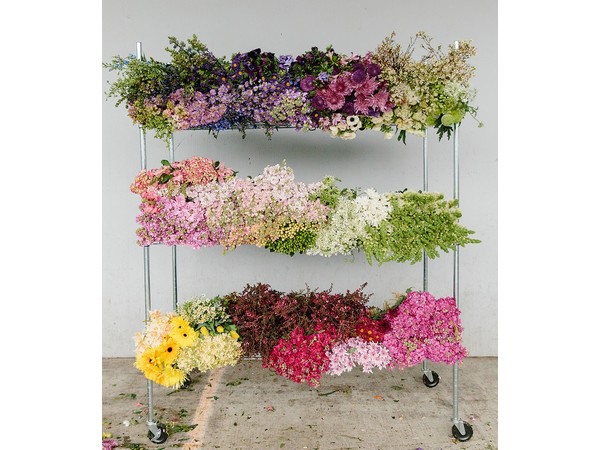 “Many of our imported flowers, such as roses and carnations, have been a severe challenge to get transported from South America. As a result, our locally grown flowers have been great substitutions and are in high demand,” says Scott Isensee, General Manager at Frank Adams Wholesale Florist. As a vendor at the Portland Flower Market, Isensee shares his experience with their recent import issues and how they have managed to cope.
“Many of our imported flowers, such as roses and carnations, have been a severe challenge to get transported from South America. As a result, our locally grown flowers have been great substitutions and are in high demand,” says Scott Isensee, General Manager at Frank Adams Wholesale Florist. As a vendor at the Portland Flower Market, Isensee shares his experience with their recent import issues and how they have managed to cope.
In the picture Scott Isensee
South American imports disrupted
Isensee explains the severity of the logistics issues, as a big amount of the flowers at the Portland Flower Market are imported. “We import our flowers year-round, and that has been a major challenge for us. The supply chain is currently really broken and it is difficult to find an adequate amount of supplies. There are not only shortages of employees, but raw materials are not available either, and the revolts in Colombia really disrupted the supply chain for us. We transport many flowers, such as roses and carnations, from South America, and all issues together resulted in a major transportation disruption for 5-6 weeks. On the other hand, our selection of local flowers is doing great, as we are not experiencing transportation issues for those.”
“Importing flowers is always a risk”
While import has been exceptionally challenging this year, Isensee mentions that is always a risk to get flowers flown overseas. “Flowers are low priority compared to other goods, such as food. As a result, when there is not enough room on a flight, the flowers get bumped.” Unfortunately, it is not just the flower imports that are currently a challenge for Isensee, as other supplies have been difficult to obtain as well. “We are a big glassware importer as we sell a lot of glass containers, but they are so difficult to obtain that our orders have been cut in half and we are on backorder until September/October.”

How to manage the issues
Fortunately, Isensee’s outlook on the overall situation is positive, as they have found ways to manage the issues and are looking forward to a future with improvements. “We never had to close because of a lack of product, and we have found ways to manage with the recent lack of imported flowers. Luckily, the Portland Flower Market can provide their customers with a great variety of local flowers instead, which have been very popular. For the imported flowers that we cannot provide at the moment, we get a bit more creative and look for substitutions. Luckily, with demand being so high, most customers do not mind choosing a different flower than what they were originally looking for.” Isensee reports that they are already doing much better than when the pandemic first started, and they are able to access more and more products. “It is still a challenge to meet the demand, but we are getting through it and are optimistic that everything will be improving even more by the end of the Summer.”
For more information:
Portland Flower Market
Scott Isensee
[email protected]
www.pdxflowermarket.com
